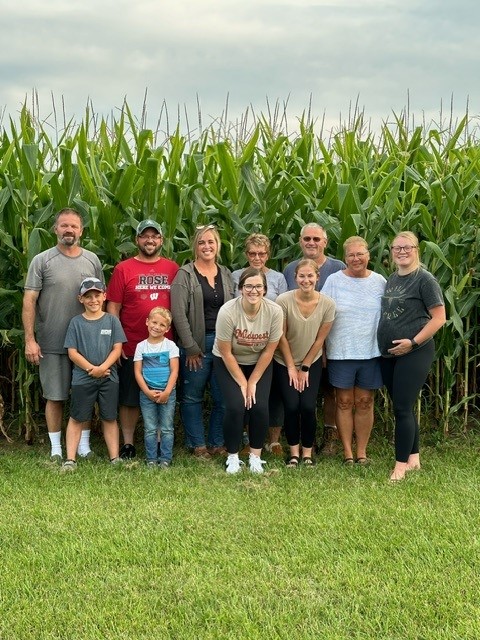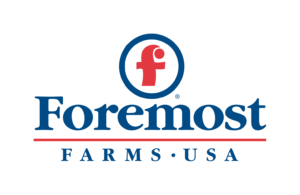
In the rural valleys of the Coulee Region, between the small communities of Cashton and Norwalk, Wisconsin, lies Brueggen Dairy Farm Inc. Fourth-generation farmer Randy Brueggen is no stranger to the dairy industry or hard work. Randy’s dedication expanded past most; he even left high school to run the farm with his mother after his father passed away at a young age.
The Brueggen’s farm story comes from humble beginnings, starting with Randy’s grandparents milking just 27 cows in the late 1950s. Over the decades, the farm has experienced tremendous growth, including numerous infrastructure updates and increases in herd sizes. Today, Randy owns and operates Brueggen’s Dairy Farm with his mother, Betty, who manages the finances.
(WDespite the farm’s growth, it remains a family affair, with all the grandkids having worked on the farm at some point, regardless of their career paths. The operation also employs 10 people in various capacities but all feel part of the family. Randy’s nephew, Chad Herricks, serves as the farm’s herdsman, working closely with the employees to ensure smooth daily operations.
In tandem, the family and staff milk nearly 600 Holsteins three times daily in a Double 12 (expandable to 15) vertical lift parlor. Chad emphasized the use of dairy technology to ensure smooth daily operations. “I check in with our digital cow manager application to get a full scope of my day and see if any cows need attention,” Chad noted. Utilizing technology to manage a herd of this size ensures time is efficiently spent, so cow comfort can remain the focus. “We have considered cow comfort throughout the entire farm,” said Chad. These comforts include sprinklers in the holding area, larger stalls for better cow movement, fans throughout the freestall barn and sand bedding.
Over the decades, the Brueggen family has made significant strides toward sustainability. In recognition of their efforts, they received the 2022 Monroe County Conservation Farmers of the Year award. The family believes in the principle that small actions can lead to big changes. They regularly collaborate with the Farm Service Agency (FSA) on projects to control erosion and manage runoff.
On the farm, the family has managed a manure pit for nearly 30 years, which is divided and used for the fields. A leaching system collects rainwater or melted snow and directs it into the manure pit. In the milking parlor, a plate cooler cools the milk more quickly, saving energy, and the water is reused for the herd.
In the fields, conservation efforts are ongoing. Across the 1,200 acres, various methods are employed to maintain optimal soil health. These include planting corn closer together to reduce erosion, using winter rye and contour strip planting. Other methods include no-till and using manure to kill the spring crop without tilling, thereby adding nutrients. “Preserve the land to keep it fertile,” Randy expressed. “We are working on leaving the land in better shape and when we inherited it.” All these efforts have real returns, including their crops becoming more drought tolerant and fewer soil rocks interfering with planting.
The Brueggen family understands that community involvement is essential to their dairy operation and embraces it wholeheartedly. They have hosted the Monroe Dairy Breakfast in the past and are always willing to sponsor a local FFA student. Chad also noted the resources provided by Foremost Farms, “Our Foremost Farms field representative Ron Brown is always welcome and will visit regularly to help us with any necessary testing,” said Chad. (We wish Ron well on his retirement, which started in August.)
The Brueggen family has much to be proud of, particularly their ability to combine successful business growth with a steadfast commitment to land conservation. The Brueggen model is a blueprint for everyone: small actions can lead to significant change.
